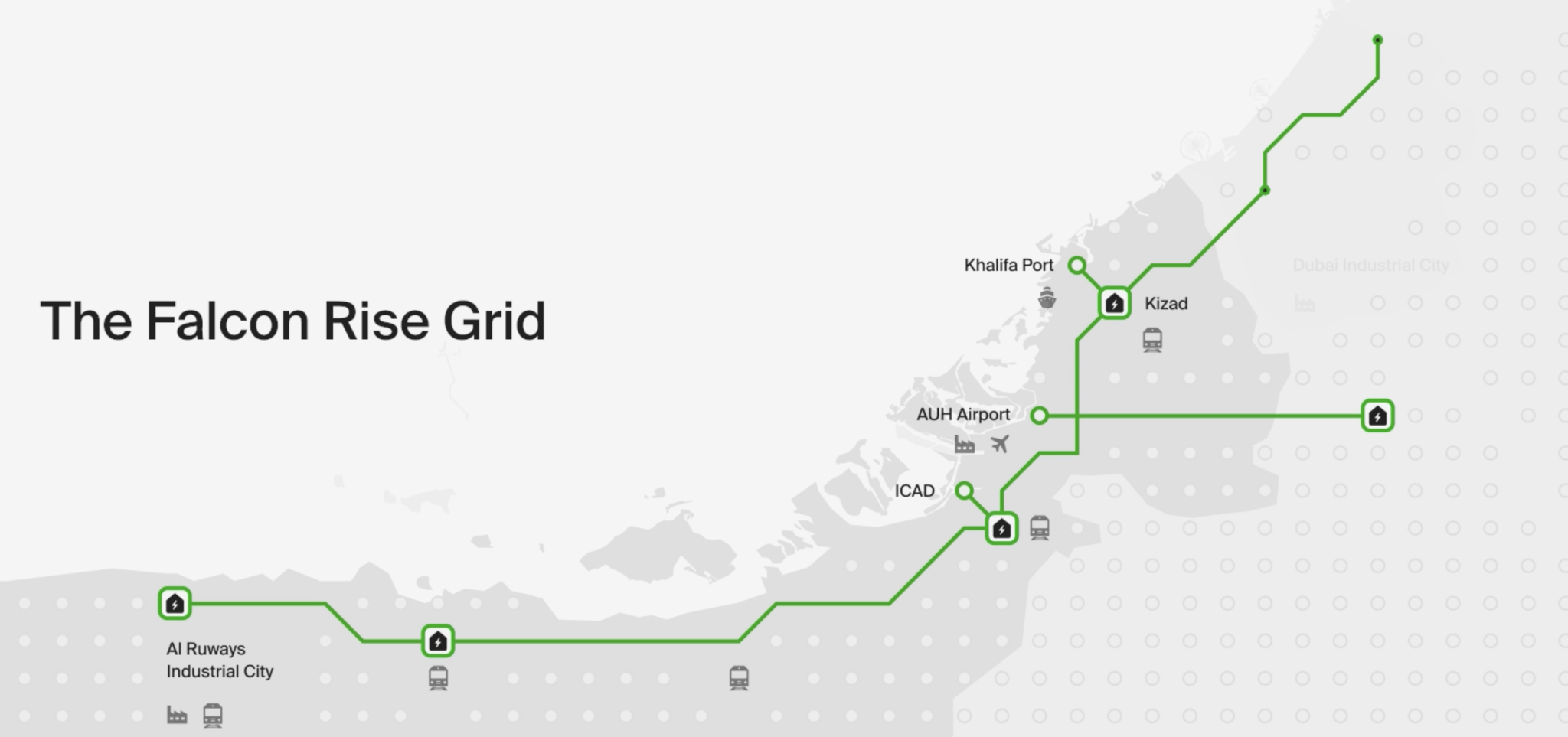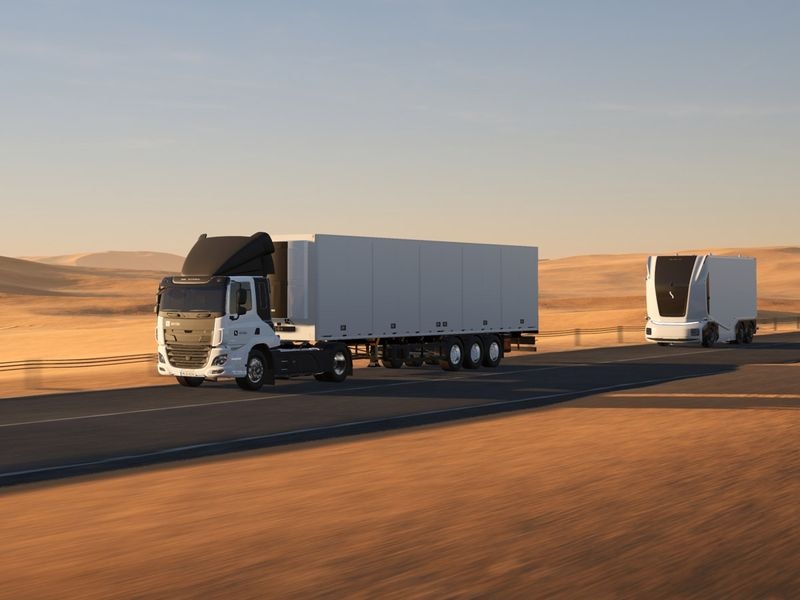This article is part of a Sifted series exploring European tech’s relationship with the Gulf.
I meet Robert Falck, CEO and founder of Swedish company Einride, overlooking an infinity pool at a hotel in Dubai — a city where he spends an increasing amount of time lately.
Einride is building the world’s largest network of autonomous electric vehicles, in the United Arab Emirates. The project, dubbed Falcon Rise, will spread 550km across the UAE, connecting Abu Dhabi, Dubai, Al Ain and Sharjah.
Einride is not the only European startup working on next-generation infrastructure in the Gulf. German electric aircraft developer Volocopter, for example, is working with Saudi Arabian megaproject The Line — a 170km-long, linear, glass-walled city in the country’s desert — to deliver its flying taxi technology in a fittingly futuristic setting.
For Falck, the region has a sense of ambition around tech that Europe lacks. “I love the ambition here, they understand that the future needs ambition,” he says. “The economies of scale will be happening here first.”
Falcon Rise
The Falcon network will see Einride deploy 2k electric vehicles — 200 of them powered by autonomous technology — onto existing roads as well as building eight charging stations. Einride’s business model involves installing its hardware and software in trucks built by third parties — companies like Daimler and Scania.

The vehicles will carry freight — primarily shipping containers. “Dubai’s traditional culture is trade,” says Falck. The country has several significant ports, which the Falcon network will connect.
Einride first started having conversations in the UAE five years ago, Falck says, before signing MoUs with the governments of both Abu Dhabi and Dubai last year.
“They want to be more than an oil-based economy,” he says. The UAE — particularly Abu Dhabi — was built on oil wealth and the country is under pressure to build a new, greener economy.
Falck doesn’t put a specific price tag on the project, but says it’s “billions of dollars”. The financing will come through customers who’ll use the freight network — Falck is in Dubai at present to meet some of them.
Einride raised a $200m Series C in 2022: investors include Temasek, Northzone, Norrsken, EQT and AMF. The VC equity goes towards the company’s central operations, while projects like Falcon are funded through debt vehicles — an increasingly common strategy in the climate tech world. Einride secured a $500m debt financing vehicle from Barclays in 2022.
“Europe is falling behind”
Although Einride’s largest market is the US, followed by Germany, Falck talks most enthusiastically about the potential of the Gulf. “Most of the major deployments of electrification, the future megaprojects, are all being done in the region,” he says.
“From an influential and economic position, Europe is falling behind,” he says. “Name one area in which Europe is leading?”
Europe lacks strong enough financial markets, Falck argues, as well as suffering from an over-focus on tech sovereignty and using homegrown solutions — a key contrast with a place like the UAE.

“I see a lot of the initiatives from the European context are protectionist rather than aimed at being competitive,” he says, adding that the UAE’s openness to work with companies from around the world, plus its ability to bring in talent, give it a competitive edge.
Next up: Saudi?
I wonder if Einride’s investors, the majority of whom are European, have had qualms about the company heading outside of Europe. “No one has brought that up,” he says.
So would Einride leave Europe? “If forced to,” he says. And what would force that? “Market speed and access to capital,” Falck says.
Falck will fly to Riyadh soon. I ask if a foray into the Saudi market could be next. “It’s something that would be a cool project,” he says, with a smile.


